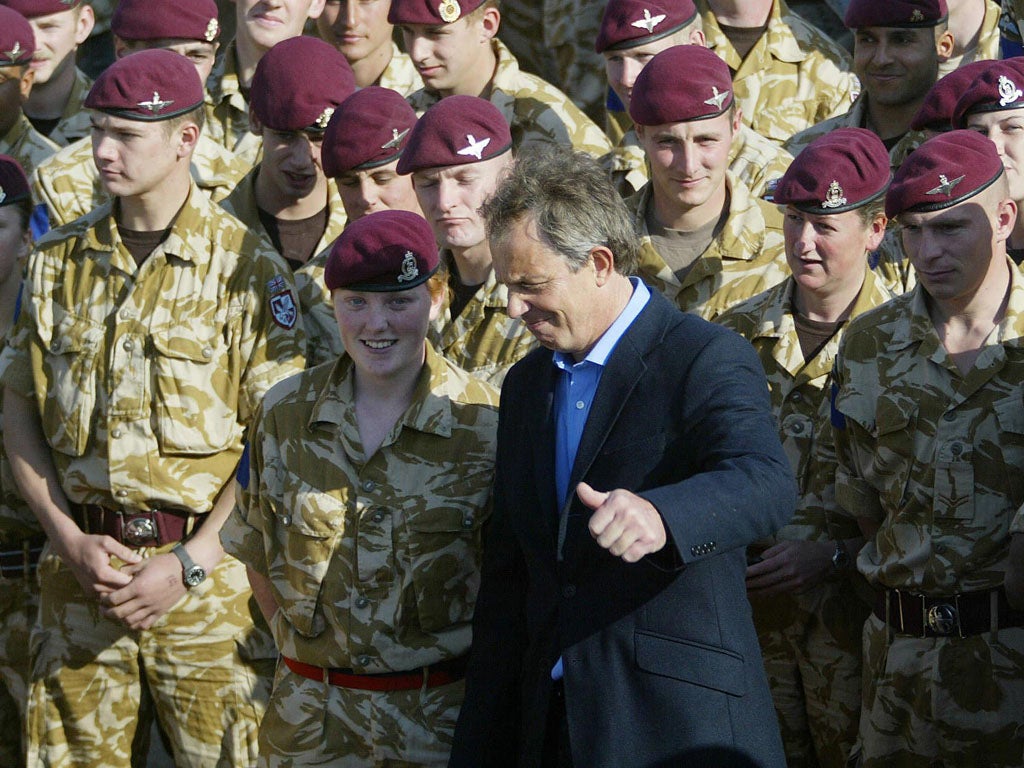Iraq 10 years on: So you think you know why Blair went to war?
Being seen as Bush’s poodle was much safer than being accused of anti-Americanism


The 10th anniversary of the war in Iraq has triggered a fresh wave of comment, reflection and debate.
The arguments are familiar and will continue to rage. Yet one key element is overlooked, as it has been in the past and probably will be in the future, and it revolves around the pivotal domestic calculations that propelled Tony Blair towards war. From a British perspective, they explain more or less everything.
Most immediately, the question Blair had to answer in the year or so before the conflict is not the one debated ever since. The question that ignites eternal fury is why Blair took Britain to war, but in fact he had to address an altogether different proposition: should he support or oppose President Bush, who had decided that he was ready to invade Iraq? For Blair, there were important subsidiary questions arising from this fundamental one. Should he form an alliance with France and Germany against the US? Should he alienate the Atlanticist wing of the Labour party? Or oppose Bush and ally himself with the party’s anti-US tendency? Should he sever all relations with Rupert Murdoch and his newspapers? Should he risk appearing soft on defence, reinforcing perceptions of Labour that he had spent his leadership seeking to purge?
To ask the questions points to the answers. It was obvious at the time, and in retrospect, that a leader with Blair’s background and approach, a figure who had defined himself against his party, was never going to be in a situation where he led the anti-American left of the Labour Party, in alliance with Germany and France. The domestic political dynamics all pointed in one direction.
They also help to answer another mystery. Why was Blair intensely relaxed about the onslaught from some newspapers that he was “Bush’s poodle”? Blair’s public answer was that he had ceased to care about media opinion and just did what was “the right thing to do”. This is not the case. To give one example of many, several years later he agonised about the smoking ban in public places and finally justified the move by suggesting: “The public gave us permission to introduce the ban.” He was still very bothered about public and media opinion.
No, the reason Blair was relaxed about the poodle accusation was because so many previous Labour leaders had been accused of being anti-American. For him to be seen as a poodle to a Republican president was much safer politically than being accused of being anti-American. He knew also that the opinion formers he cared most about, from Murdoch downwards or upwards, welcomed his close relationship with Bush. Politically, he was in his comfort zone.
More specifically, during this period Blair once told me: “At least when we have the referendum on the euro no one will accuse me of being anti-American.” Blair’s calculations in relation to Iraq can only be understood in a much wider political context. He still hoped to be the Prime Minister that took Britain into the euro. He assumed that, in the campaign, he would face the opposition of Murdoch’s newspapers which would then be in alliance with the Eurosceptic leadership of the Conservative party. From that perspective, the dynamics of Iraq were the perfect counter – Blair showing that, although he was a pro-European, he was a rock solid ally of the US and willing to challenge Germany and France over international affairs. Shortly after the war ended, in the early summer of 2003, Blair made an extraordinary attempt to bounce Gordon Brown into accepting the case for joining the euro.
Blair was a true believer in Third Way politics, a simplistic approach that meant navigating a middle way when faced with a nightmarish dilemma. After Bush made his famous speech about the “axis of evil” more than a year before the invasion, Blair knew for certain that Iraq was in the sights of the US. Blair recognised almsot instinctively that his unique alliance of electoral and media support would implode if he were to oppose Bush, but hoped that if he persuaded Bush to take his case to the UN he might be able to retain the support of most of his party and “progressive” opinion as well as so-called middle England. Facing the most politically acute conundrum of his leadership Blair clung to his third way: yes to Bush, but through the UN.
Once the course was set, there was no going back. Blair could not announce to Bush and to admiring media watchers that he had changed his mind. Rightly, Blair believed there was nothing he could have done to stop Bush invading Iraq. The war would have happened even if he had opposed it. Once he had decided, via his third way, to support the conflict, the evidence that war would be a terrible catastrophe was for him irrelevant. Any evidence to justify the war acquired overwhelming significance.
In a very tight corner, the domestic calculations for Blair were overwhelmingly in favour of one direction, even if they were not the decisive factors. Note that the three main war leaders in the US, UK and Australia all went on to win their subsequent domestic elections. The lessons for our current leaders are many and for another column.
Twitter: @steverichards14
Join our commenting forum
Join thought-provoking conversations, follow other Independent readers and see their replies
Comments
Bookmark popover
Removed from bookmarks